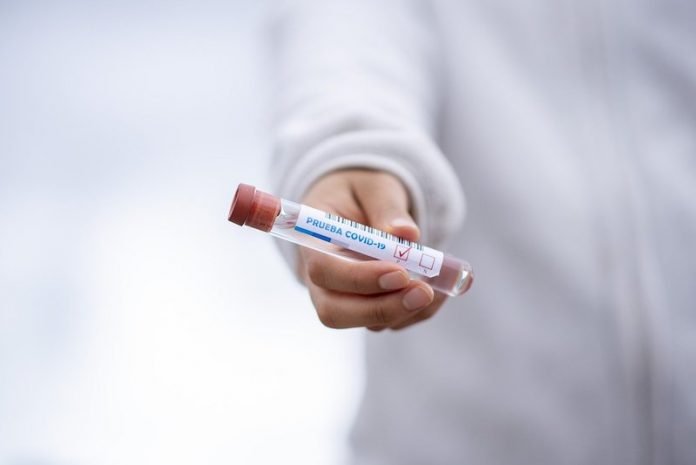
Antibody testing can be a powerful tool for tracking the spread of SARS-CoV2 infections, the virus responsible for the COVID-19 pandemic.
In a new study from EPFL, UNIGE and HUG, researchers developed a reliable and cheap antibody test that can analyze more than 1,000 samples at once and requires a small drop of blood, such as that from a finger prick.
After people get infected with the SARS-CoV-2 virus that causes COVID-19, they start to produce immune molecules called antibodies. COVID-19 antibody tests pick up on the presence of antibodies against SARS-CoV-2 in the blood.
Because antibodies can take several days to weeks to develop, antibody tests can’t detect active infections, but they can help to find out what proportion of communities have been infected with the virus in the past.
Antibody tests are also a powerful tool to evaluate COVID-19 vaccine efficacy in clinical trials, when scientists look at the rise in antibodies after volunteers get a jab.
However, antibody tests rely on rather expensive reagents and typically require larger quantities of blood taken with a venous blood draw, which can only be performed by trained healthcare personnel.
In the study, the term developed a highly accurate test platform that can analyze hundreds of samples at the same time, using minute quantities of reagents and single drops of blood.
The platform, which can analyze up to 1,024 samples at once, consists of a complex network of tiny tubes carved into a plastic chip that is about the size of a USB stick.
To perform the assay, the researchers feed individual blood samples and test reagents through the channels of this ‘microfluidic’ chip.
If antibodies against SARS-CoV-2 are present in a blood sample, a molecule generates a signal that can be detected as a fluorescent glow under a microscope.
When the team tested blood samples from 155 individuals infected with SARS-CoV-2, the assay detected antibodies against the virus in 98% of cases.
The assay is also extremely specific: it never detected antibodies against the virus in samples from people who had not been infected with SARS-CoV-2.
The team says the approach of collecting blood in a decentralized way by a simple finger prick can be even done at home.
It could even be used for remote geographic regions that lack sufficient laboratory capacity, for example, to conduct seroprevalence studies in Sub-Saharan Africa.
If you care about COVID-19, please read studies about this depression drug may protect you from severe COVID-19 and findings of this common drug could cut COVID-19 death risk by nearly 50%.
For more information about COVID-19 treatment and prevention, please see recent studies about this new finding may help close door on COVID-19 and results showing that these people are key to spreading COVID-19.
The study is published in the Proceedings of the National Academy of Sciences. One author of the study is Zoe Swank.
Copyright © 2021 Knowridge Science Report. All rights reserved.



